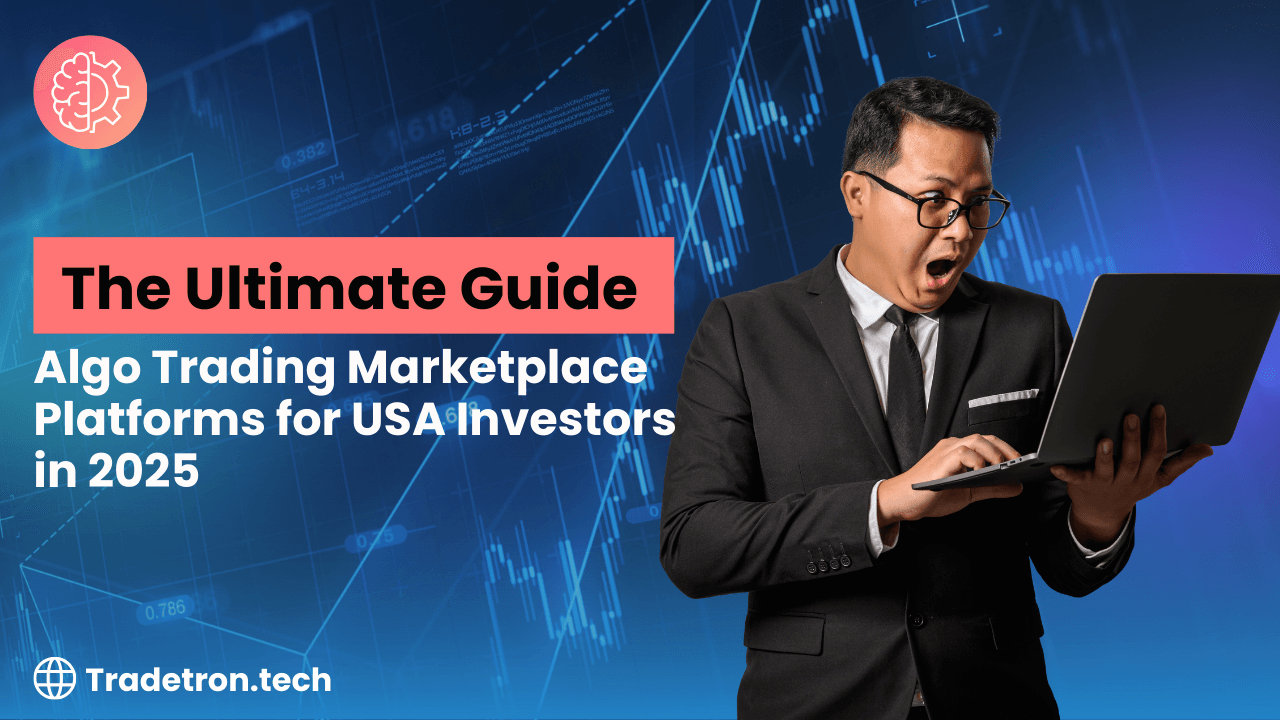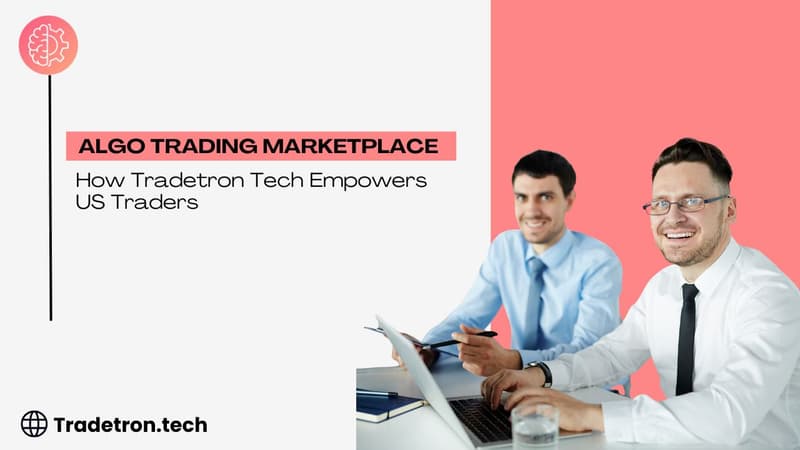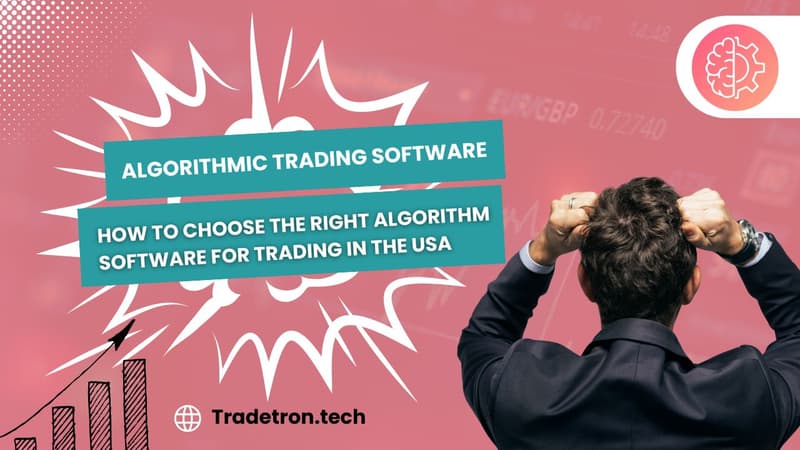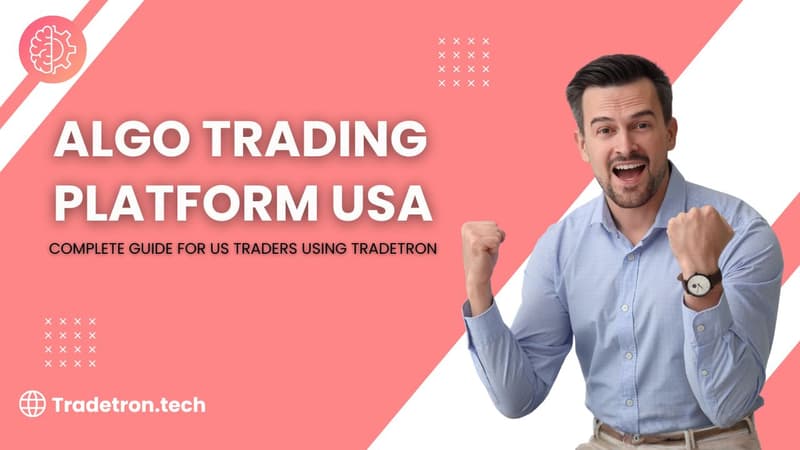
The algo trading marketplace landscape has evolved dramatically, transforming how traders access, develop, and deploy algorithmic strategies. These digital platforms have democratized sophisticated trading technologies, making professional-grade algorithms accessible to both institutional investors and retail traders across the United States.
As algorithmic trading continues to dominate financial markets—with over 75% of trades now executed via algorithms—choosing the right marketplace platform has become crucial for trading success. This comprehensive guide explores the leading algo trading marketplace options, their features, and how to select the best platform for your trading objectives.
What is an Algo Trading Marketplace?
An algo trading marketplace is a digital platform that connects algorithm developers with traders, creating an ecosystem where trading strategies can be shared, purchased, and deployed automatically. These marketplaces serve multiple functions:
- Strategy Repository: Curated collections of pre-built trading algorithms across various asset classes and market conditions.
- Development Environment: Tools and infrastructure for creating custom algorithms without extensive programming knowledge.
- Backtesting Facilities: Historical data and testing environments to validate strategy performance before live deployment.
- Execution Infrastructure: Direct connections to brokers and exchanges for seamless trade execution.
- Community Features: Forums, ratings, and reviews that help traders make informed decisions about strategies and platform capabilities.
Key Features of Modern Algo Trading Marketplaces
No-Code Algorithm Development
Modern platforms have revolutionized strategy creation by offering drag-and-drop interfaces and visual programming tools. This democratization allows traders without programming expertise to build sophisticated algorithms using pre-built components and logical frameworks.
Multi-Asset and Multi-Exchange Support
Leading marketplace support diverse asset classes, including equities, options, futures, forex, and cryptocurrencies across multiple exchanges. This versatility enables portfolio diversification and cross-market arbitrage opportunities.
Real-Time Strategy Performance
Transparent performance metrics including returns, drawdowns, Sharpe ratios, and trade frequency help users evaluate strategies effectively. Real-time tracking ensures strategies perform as expected in live market conditions.
Risk Management Integration
Built-in risk controls, including position sizing, stop-loss mechanisms, and portfolio-level risk limit protect traders from excessive losses while maintaining strategy integrity.
Social Trading Features
Community-driven elements allow successful traders to share strategies while enabling followers to automatically replicate proven approaches, creating a social trading ecosystem.
Leading Algo Trading Marketplace Platform
Tradetron: The Comprehensive Solution
Tradetron stands out as a leading algo trading marketplace, particularly well-suited for both US and international traders. The platform offers several compelling advantages:
- Multi-Market Access: Access to USA (NASDAQ equity and forex) and international markets from a single platform.
- No-Code Strategy Builder: Create complex algorithms without programming knowledge using logical conditions and pre-built modules.
- Extensive Broker Integration: Connections to 35+ brokers across USA and Indian markets.
- Proven Scale: Processes ~10,000 algorithms executing 1.5M trades monthly.
- Paper Trading Environment: Backtesting and demo trading for safe validation before going live.
- Strategy Marketplace: Thousands of pre-built strategies with transparent metrics and user ratings.
Benefits of Using Tradetron Algo Trading Marketplace
- Access to Professional Strategies: Benefit from strategies built by experts and quantitative analysts.
- Diversification Opportunities: Multiple strategies across assets improve portfolio balance.
- Time Efficiency: Pre-built strategies reduce development time.
- Continuous Innovation: Marketplace communities constantly improve and create new strategies.
- Cost Effectiveness: Shared development costs make advanced tools affordable.
Choosing the Right Algo Trading Marketplace
Assess Your Technical Expertise
- Beginners: Platforms like Tradetron with no-code tools and learning resources.
- Intermediate: Platforms with visual builders + limited coding.
- Advanced: Developer-focused platforms like QuantConnect for maximum control.
Evaluate Market Access
Ensure your chosen platform supports the markets and assets you want to trade. For US traders, verify SEC compliance and broker integrations.
Consider Cost Structure
Compare subscription tiers, strategy fees, and broker charges. Choose based on your trading frequency and capital.
Review Strategy Quality
Check vetting processes, transparency, and user reviews before selecting strategies.
Assess Support and Education
Opt for platforms with documentation, tutorials, and strong support, especially if you’re new.
Implementation Best Practices
- Start with Paper Trading: Test before committing capital.
- Diversify Strategies: Spread across assets and approaches.
- Monitor Performance: Regularly review live performance.
- Understand Risks: Be aware of drawdowns, volatility, and correlations.
- Stay Realistic: Algorithms reduce emotions, not risks.
The US Regulatory Landscape
- SEC Oversight: Compliance with registration and risk management standards.
- Broker-Dealer Partnerships: Platforms execute via registered brokers.
- Risk Disclosures: Clear communication about risks and losses.
- Audit Trails: Mandatory records of all trades for compliance.
Future Trends in Algo Trading Marketplaces
- AI Integration: Smarter strategies and risk analysis.
- Mobile Trading: More mobile-first platforms.
- Social Features: Stronger communities and strategy sharing.
- Alternative Data: Using new data sources like sentiment and satellite imagery.
- RegTech: Automated compliance and reporting.
Common Pitfalls to Avoid
- Over-Optimization: Beware of perfect backtests.
- Ignoring Transaction Costs: Factor in spreads and commissions.
- Weak Risk Management: Never go live without stop-losses.
- Platform Dependency: Don’t rely on one provider.
- No Monitoring: Strategies need ongoing oversight.
Getting Started: A Step-by-Step Guide
- Define Objectives: Goals, risk tolerance, capital, time.
- Research Platforms: Compare features and reviews.
- Open Demo Accounts: Test usability first.
- Start Small: Allocate minimal capital initially.
- Scale Gradually: Increase size as confidence builds.
The Role of Community in Marketplace Success
- Strategy Ratings: Learn from peer reviews.
- Discussion Forums: Share and troubleshoot.
- Educational Content: Webinars and tutorials.
- Mentorship: Learn from experienced traders.
Technology Infrastructure Considerations
- Latency & Speed: Crucial for high-frequency strategies.
- Reliability: Check uptime and redundancy.
- Data Quality: Verify sources and frequency.
- Security: Ensure robust encryption and safeguards.
Cost Analysis and ROI Evaluation
- Subscription Fees: $29–$99/month on average.
- Strategy Costs: Premium strategies may cost extra.
- Transaction Costs: Broker commissions and exchange fees.
- Tech Infrastructure: Internet, backups, monitoring tools.
Advanced Features for Professional Traders
- Custom Algorithm Development: Flexibility for unique needs.
- Advanced Risk Analytics: VaR, stress testing, correlation tools.
- Multi-Account Management: Handle multiple portfolios.
- API Access: For custom integrations and automation.
Conclusion
The algo trading marketplace landscape offers unprecedented opportunities for US traders to access sophisticated strategies. Platforms like Tradetron democratize professional-grade capabilities for everyone.
Success requires careful platform selection, strategy evaluation, and risk management. With AI and machine learning advancing, opportunities are expanding further for disciplined traders.
Whether you’re a beginner or experienced, the right marketplace can elevate your trading journey.
Frequently Asked Questions (FAQs)
What is the best algo trading marketplace for beginners in 2025?
Tradetron, with its no-code builder, paper trading, and educational resources, is a strong starting point.
How much does it cost to use algo trading marketplace platforms?
Basic subscriptions: $29–$99 monthly. Premium features or strategies may add costs.
Are algo trading marketplaces regulated in the United States?
Yes, they must comply with SEC regulations and broker-dealer requirements.
Can I create my own algorithms without programming knowledge?
Yes, platforms like Tradetron provide drag-and-drop builders.
What's the difference between algo trading marketplaces and traditional brokers?
Marketplaces offer strategy libraries, automation, and backtesting; brokers focus mainly on trade execution.
How do I evaluate the performance of strategies?
Check returns, drawdowns, Sharpe ratio, win rate, and costs in real conditions.
What markets can I access?
US equities, forex, commodities, and international markets (varies by platform).
Is algorithmic trading profitable for retail investors?
It can be, but requires good strategy selection and risk control.
What are the main risks?
Strategy underperformance, tech failures, volatility, and poor monitoring.
How much capital do I need?
Most start with $1,000–$5,000; $25,000 is recommended for day trading compliance.
Can I use multiple algo trading marketplaces?
Yes, diversification across platforms reduces dependency.
What programming languages are supported?
No-code for beginners; Python, C++, C#, and R for advanced users.
How is intellectual property handled?
Usually, developers keep ownership but grant platform usage rights.
What support should I expect?
Docs, tutorials, email, live chat (varies by platform).
Are there restrictions for US residents?
Yes, including pattern day trading rules and SEC compliance.



 Made with Superblog
Made with Superblog